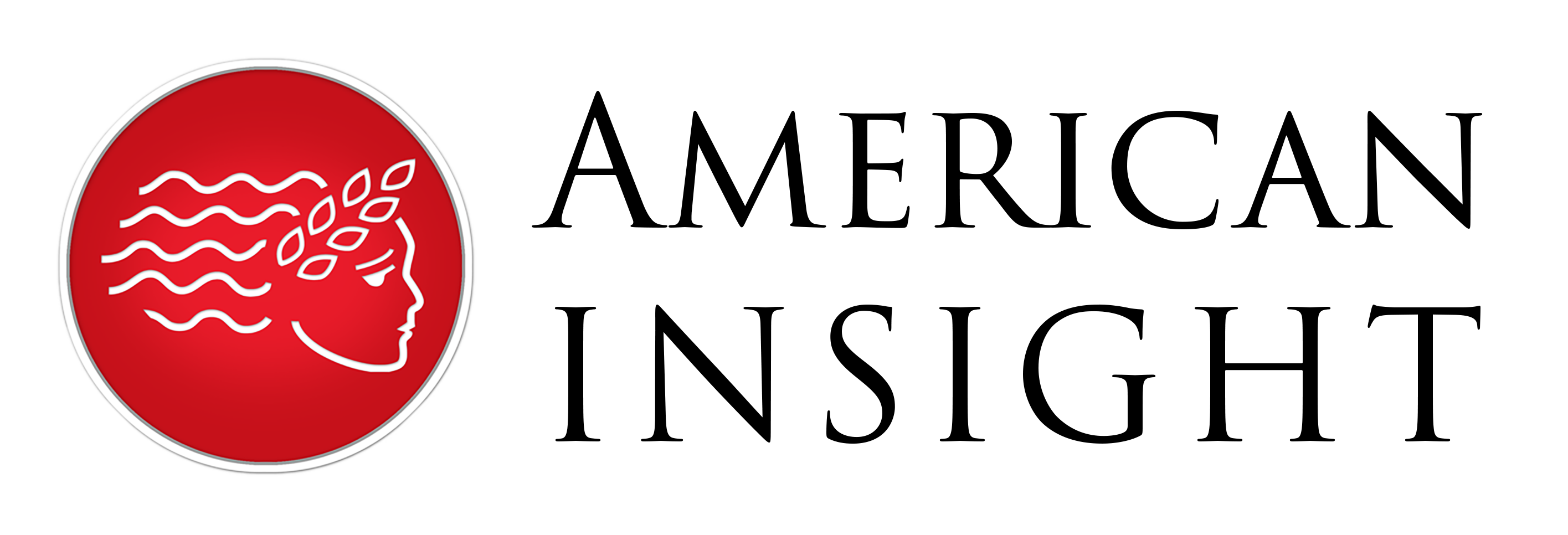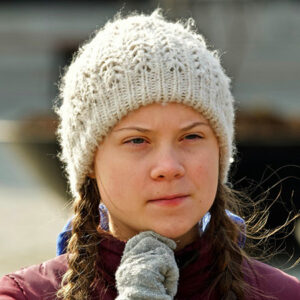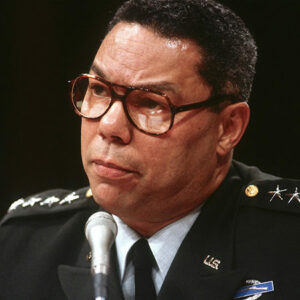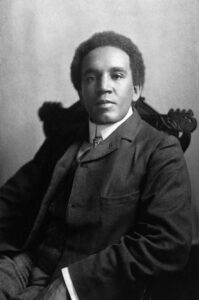Free Speech Storyline
American INSIGHT was founded in 1983 as the American Poetry Center and promoted the Spoken Word for the Pennsylvania Council of the Arts before the concept became National Poetry Month.
After producing an award-winning documentary on Philadelphia artist, Arthur B. Carles, we rebranded as American INSIGHT in 2005. Then, based on five years of research into Violet Oakley’s murals in the Pennsylvania State Capitol Building, we developed our Free Speech Storyline and Free Speech Film Festival. Our Free Speech Archives now contain 40 years of institutional history in multimedia formats.
Behind each person or event on the Free Speech Storyline is a link to more detailed information. For convenience of reference to general information regarding the persons and events listed in the Storyline, American INSIGHT has included links to well-known websites. In providing such links, American INSIGHT makes no representations or warranties as to the accuracy of the information provided by such sites. On some sites, it is possible that a balanced and objective view of an individual or event may not be presented because of the omission of relevant information or the inclusion of facts that have not been substantiated. Readers desiring to learn more about individuals and events on the Free Speech Storyline are urged to consult sources that have been subject to peer review by other scholars.
LEARN MORE ABOUT THE FIGHT FOR HUMAN RIGHTS
Ready for a deeper dive into Free Speech?
Learn more about the evolution of Free Speech, Human Rights, and the Rule of Law
Greta Thunberg (2003 - Present)
Ayaan Hirsi Ali ( 1969 – Present)
“Where there is no freedom of speech, there is no conscience.”
U.S. General; chairman of the Joint Chiefs of Staff; Secretary of State
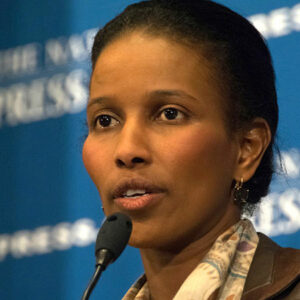
Oprah Winfrey (1954 - Present)
“Speaking your truth is the most powerful tool we all have.”
“Queen of All Media,” philanthropist, first black multi-billionaire in American history
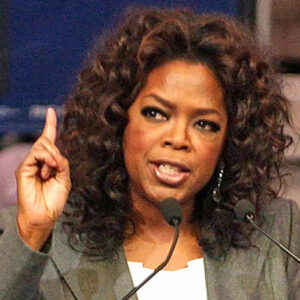
The Fall of the Soviet Union (1991)
“When truth is replaced by silence, the silence is a lie.”
—Yevgeny Yevtushenko
Soviet Empire dissolves into 15 independent states
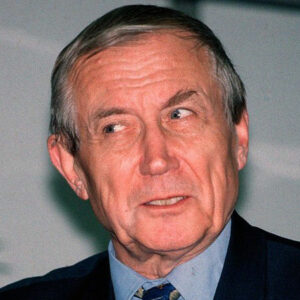
Colin Powell (1937 - 2021)
Gregory Harvey ( 1936 - 2018)
First Amendment lawyer, scholar of early American history, lifelong defender of the Rule of Law
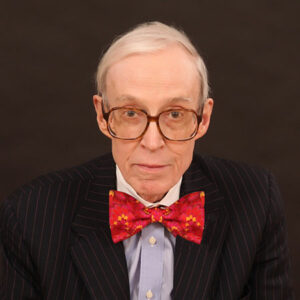
Gloria Steinem (1934 - Present)
"The truth will set you free, but first it will piss you off.”
Nationally recognized leader of the Feminist Movement in America
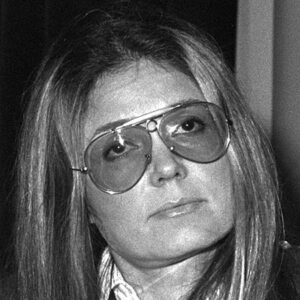
Dick Gregory ( 1932 – 2017)
“There is a limit on how much information you can keep bottled up.”
Comedian, political activist, and pioneer for mocking bigotry and racism
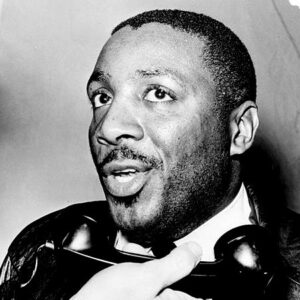
Martin Luther King Jr.(1929 - 1968)
“Our lives begin to end the day we become silent about things that matter.”
Martin Luther King wins Nobel Peace Prize for combating racial inequality through nonviolence
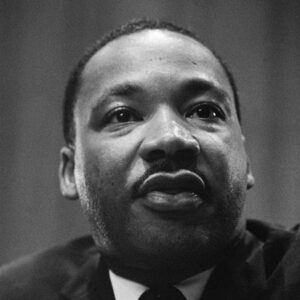
Robert Indiana (1928 - 2018)
“My goal is that LOVE should cover the world.”
Robert Indiana makes LOVE during the Pop Art Revolution
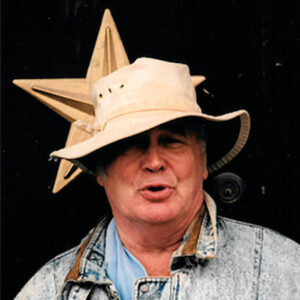
Lenny Bruce (1925 - 1966 )
“My only challenge was to tell my truth, man.”
Satirist whose conviction in an obscenity trial becomes a landmark for freedom of speech
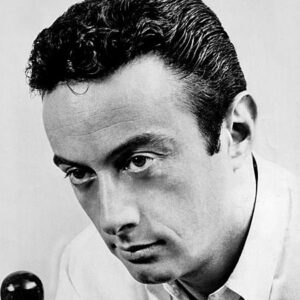
Fred Korematsu (1919 -2005)
“If you have the feeling that something is wrong, don’t be afraid to speak up.”
Civil Rights activist arrested for objecting to the internment of Japanese Americans in World War II
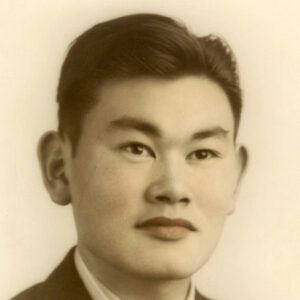
Arthur B. Carles (1882 - 1952)
“A painting is beautiful for its felicitous harmony of colors. Nothing more or less should be sought.”
Artist shocks Philadelphia with new style of Art based on radical French Impressionists
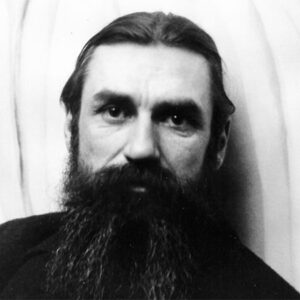
Samuel Coleridge-Taylor (1875 - 1912)
Violet Oakley (1874 - 1961)
“Neither the masculine nor the feminine has any place in art. Art is human.”
Philadelphia artist completes murals in Pennsylvania State Capitol Building and becomes America’s first female muralist.
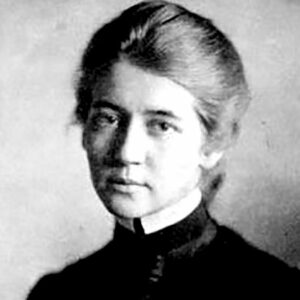
Ida B. Wells (1862 - 1931)
“Equal and exact justice be accorded to every citizen of whatever race, who finds a home within the borders of the land of the free.”
Civil Rights activist helps found the National Association for the Advancement of Colored People
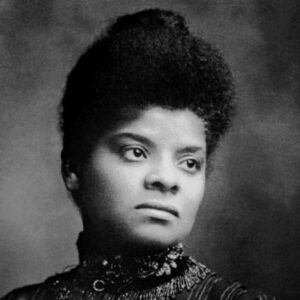
American Civil War (1861 - 1865)
“Liberty is your birthright … and it is a sin that you have been deprived of it for so many years.”
—Abraham Lincoln
Civil War abolishes two centuries of slavery in America
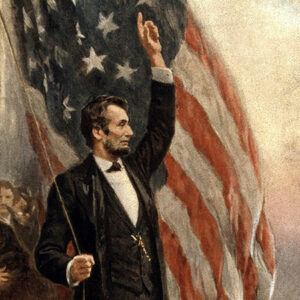
Sigmund Freud (1856 - 1939)
“The first requisite of civilization is that of justice.”
Controversial neurologist influences 20th Century with his invention of psychoanalysis.
John Hunn (1818 - 1894)
American farmer and abolitionist who was a “station master” of the Underground Railroad in Delaware
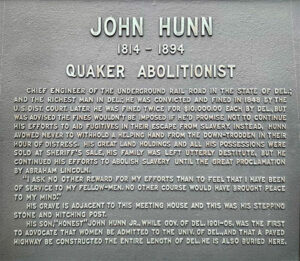
Frederick Douglass (1818 - 1895)
“To suppress free speech is a double wrong. It violates the rights of the hearer as well as those of the speaker.”
National abolitionist leader famous for his oratory and incisive antislavery writings
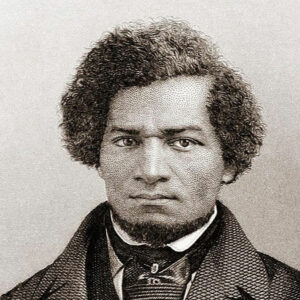
Henry Highland Garnet (1815 - 1882)
“No oppressed people have ever secured their rights without resistance.”
First Black minister to address the U.S. House of Representatives and encourage slaves to rebel against their owners
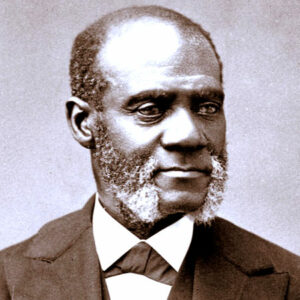
Bethel Burying Ground Project (1810 - present)
The project researches the history of a 19th Century African American burial ground in Philadelphia built on land purchased in 1810 by the prominent historical figure, Reverend Richard Allen, and the founding trustees of Mother Bethel African Methodist Episcopal Church.
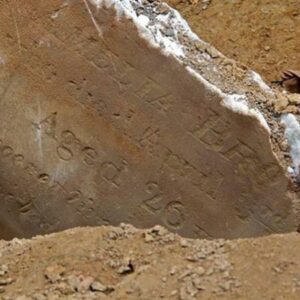
Sojourner Truth (1797 - 1883)
“I am the seed of the free, and I know it. I intend to bear great fruit.”
Women’s rights activist demands equal human rights for all women.
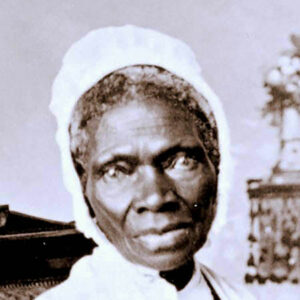
David Walker (1796 - 1830)
“Treat us like men, and there is no danger but we will all live in peace and happiness.”
Abolitionist, writer and activist calls for Black unity in the fight against oppressive and unjust slavery
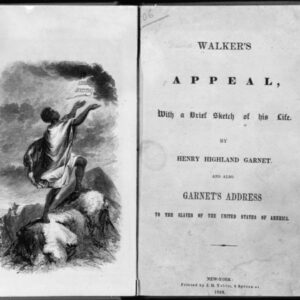
Bill Of Rights 1791
“Congress shall make no law respecting an establishment of religion, or prohibiting the free exercise thereof; or abridging the freedom of speech, or of the press; or the right of the people peaceably to assemble, and to petition the government for a redress of grievances.”
First Ten Amendments to the US Constitution guarantee freedom of speech, assembly, and worship
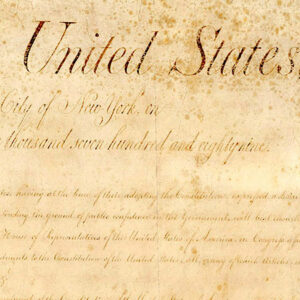
U.S. Constitution (1787)
“We the people of the United States, in order to form a more perfect Union, establish justice … and secure the blessings of liberty to ourselves and our posterity
U.S. Constitution delineates national framework of government and individual rights
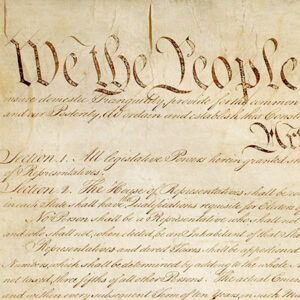
Declaration Of Independence (1776)
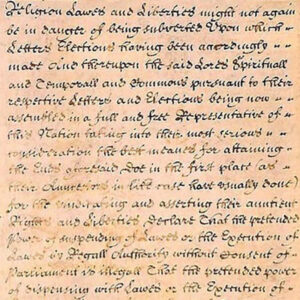
Richard Allen (1760 - 1831)
“This land, which we have watered with our tears and our blood, is now our mother country, and we are well satisfied to stay where wisdom abounds and the gospel is free.”
Founder, African Methodist Episcopal Church, first independent black denomination in America
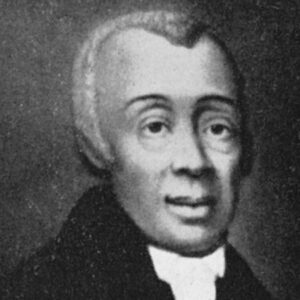
Marquis de Lafayette (1757 - 1834)
“When the government violates the people’s rights, insurrection is, for the people… the most sacred of the rights and the most indispensible of duties.”
Major-general in the Continental Army under George Washington; leader of the Garde Nationale during the French Revolution; author of Declaration of the Rights of Man.
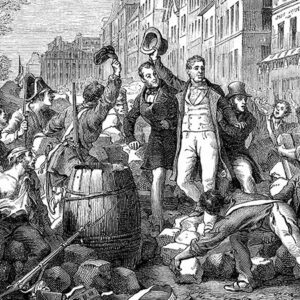
Free Speech Trial (1735)
The press has “a liberty both of exposing and opposing tyrannical power by speaking and writing truth.”
—Andrew Hamilton
Andrew Hamilton successfully defends publisher John Peter Zenger by establishing that jurors, not judges, determine the truth in a defense to an accusation of libel.
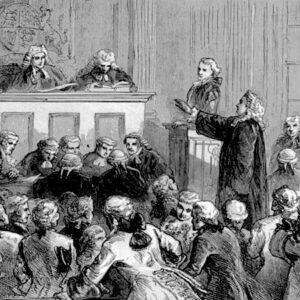
Benjamin Chew, Esq. (1722 -1810)
"An opposition of force of arms to the lawful authority of the king or his ministries … is high treason, but in the moment when the king or his ministries shall exceed the constitutional authority vested in them … submission to their mandates becomes treason”
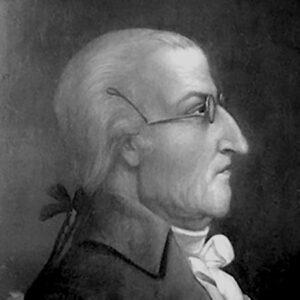
Jupiter Hammon (1711 – 1806)
“… I am writing to you with a design to say something to you for your good, and with a view to promote your happiness.”
Poet becomes the first African-American to be published in America
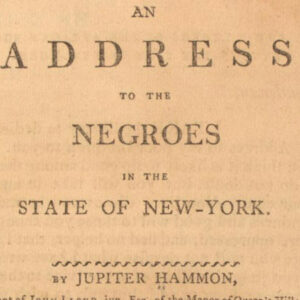
English Bill Of Rights (1689)
“Freedom of speech and debates or proceedings in Parliament ought not to be impeached or questioned in any court or place out of Parliament.”
English Bill of Rights limits power of the royalty; supports democratic elections; and reinforces freedom of speech for all people.

William Penn (1682)
"No people can be truly happy… if abridged of the freedom of their consciences as to their religious profession and worship."
Penn welcomes immigrants to Pennsylvania
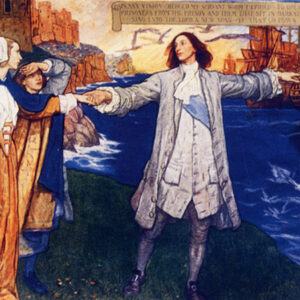
Andrew Hamilton, Esq. (1676 - 1741)
“It is natural, it is a privilege, I will go farther, it is a right, which all free men claim that they are entitled to complain when they are hurt.”
In 1735, Scottish lawyer successfully argues that Truth is a defense against charges of libel.
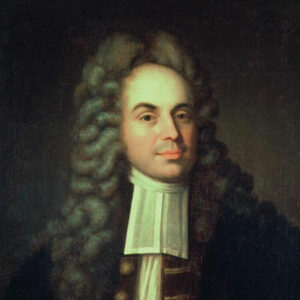
William Penn (1670)
“Liberty of conscience” is not “a mere Liberty of Mind” but a liberty to exercise religion.
Penn writes “The Great Case of Liberty of Conscience” from his jail cell in the Tower of London
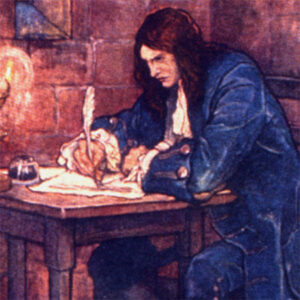
William Penn (1668)
“Men must be governed by God or they will be ruled by tyrants.”
William Penn sent to Tower of London for Quaker beliefs.
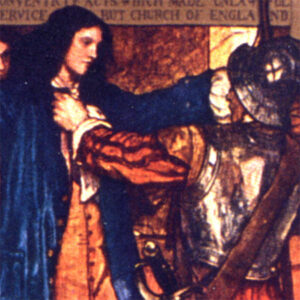
English Civil War (1642 - 1651)
“I plead for this nation, and all the honest men therein.”
Civil War shifts power of government from the King to the people
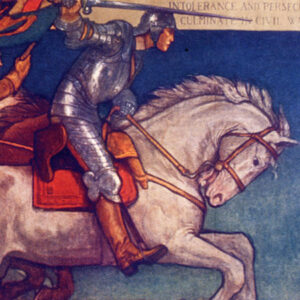
George Fox (1624 - 1691)
“Stand still in that power that brings peace.”
English Dissenter, founder of Religious Society of Friends preaches radical Quaker thought.
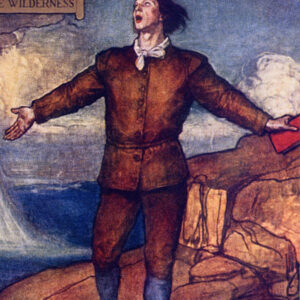
Mary Dyer (1611 – 1660)
“Nay, man, I am not now to repent.”
Executed on Boston Common for expressing Quaker beliefs
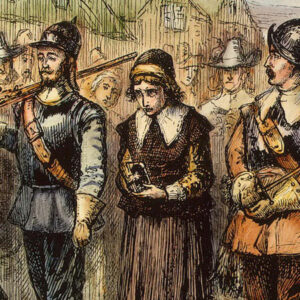
Anne Askew (1521 - 1546)
“I said that I would rather die than break my faith.”
Evangelical martyr, renaissance writer, woman who refused to submit to the rules of her day
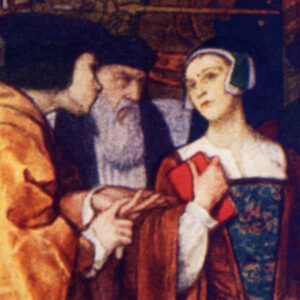
William Tyndale (1494 -1536)
“I perceived how that it was impossible to establish the lay people in any truth except … in their mother tongue.”
Executed for translating the Bible from Latin into English for the common man
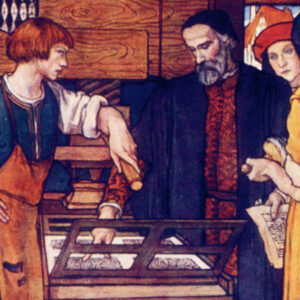
Magna Carta (1215)
“To no one deny or delay right or justice.”
‘The Great Charter’ establishes the principle that everyone is subject to the law, even the king; guarantees the rights of individuals; the right to justice; and the right to a fair trial.
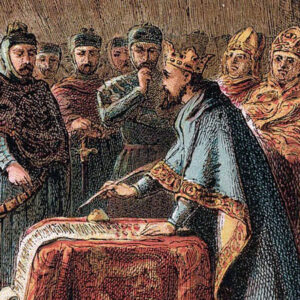
Ready to learn more?
Learn more about the evolution of Free Speech, Human Rights, and the Rule of Law
